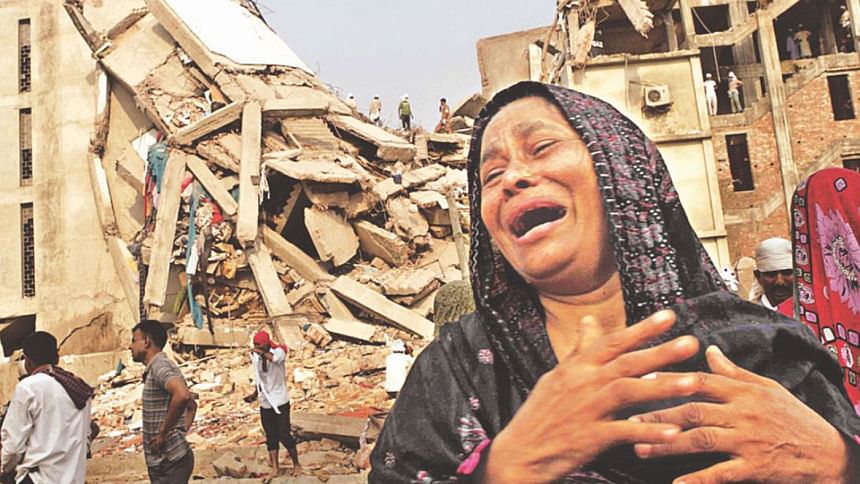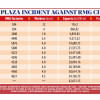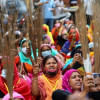Over half of Rana Plaza survivors unemployed

Around 54.5 percent of Rana Plaza survivors are unemployed while 89 percent of them have been without work for the past five to eight years, said a latest survey.
The survey, conducted by the Institute of Social Business on behalf of ActionAid Bangladesh, said 5.5 percent have been unemployed for the last three to four years.
The key reason for those who are currently jobless is their health condition, suggesting that physical health continues to be a significant barrier to employment for many survivors, it said.
Additionally, 21 percent of the respondents reported that they could not find a suitable job.
The study findings were revealed yesterday at a multilogue titled "The Rana Plaza Experience: Tragedy to Transformation" at a city convention hall, marking the 10th year anniversary of the building collapse.
The study was conducted among 200 survivors (69.5 percent women) and families of the deceased workers affected by the Rana Plaza tragedy.
The findings highlighted several key points related to the current condition of the survivors, including their current physical health status, psychosocial well-being, and financial status.
The study also found that the key reason for those who are currently unemployed is their physical health condition although the number has fallen from 67 percent to 47 percent from last year.
It also mentioned that the physical health status of the Rana Plaza incident survivors has not shown any significant improvement -- the proportion of survivors claiming to be completely stable has decreased from 17 percent in 2014 to 7.5 percent in 2023, but the percentage of respondents whose health has deteriorated increased from 9 percent to 22.5 percent during the same period.
More than one-third of the respondents said they are suffering from back pain, while a quarter complained about suffering from headaches.
Other health problems include breathing problems, hand, and leg injuries, inability to stand and walk properly, vision and kidney problems.
In terms of psychosocial health, there is still a significant proportion (29 percent) of traumatised survivors whose condition is deteriorating.
Of the traumatised, 57.8 percent of respondents are living in fear because of their experience of the building collapse, while 28.9 percent complained of being worried about their health and safety.
The study also revealed the monthly family income of half of the respondent survivors was found to be between Tk 10,001 and Tk 15,000, while around 19.5 percent have a monthly family income between Tk 15,001 and Tk 20,000, and 11 percent get more than Tk 20,000 per month, indicating that that the household income of majority of the respondents is insufficient to cover their family expenses.
Nearly half of the survivors reported a monthly expenditure of around Tk 15,000, while many respondents do not have any savings to rely on in case of unforeseen expenses, such as a health emergencies.
Farah Kabir, country director of ActionAid Bangladesh, said, "There have been positive changes but many of them are suffering both physically and mentally. The most important thing is they have not been able to find economic opportunities to move on. Rana Plaza survivors need support to find an alternative livelihood."
Tuomo Poutiainen, country director, ILO Country Office for Bangladesh, said, "It is important to recognise the significant strides made in occupational safety and health in the garment industry following the Rana Plaza tragedy. It is the responsibility of the government to implement the policies and regulations to ensure the safety of all workers."
Julia Jesmin, joint inspector general of Department of Inspection for Factories and Establishments, Rajekuzzaman Ratan, general secretary of Somajtantrik Sramik Front, and Wajedul Islam Khan, general secretary of Trade Union Centre, among others, attended the event.

 For all latest news, follow The Daily Star's Google News channel.
For all latest news, follow The Daily Star's Google News channel. 








Comments